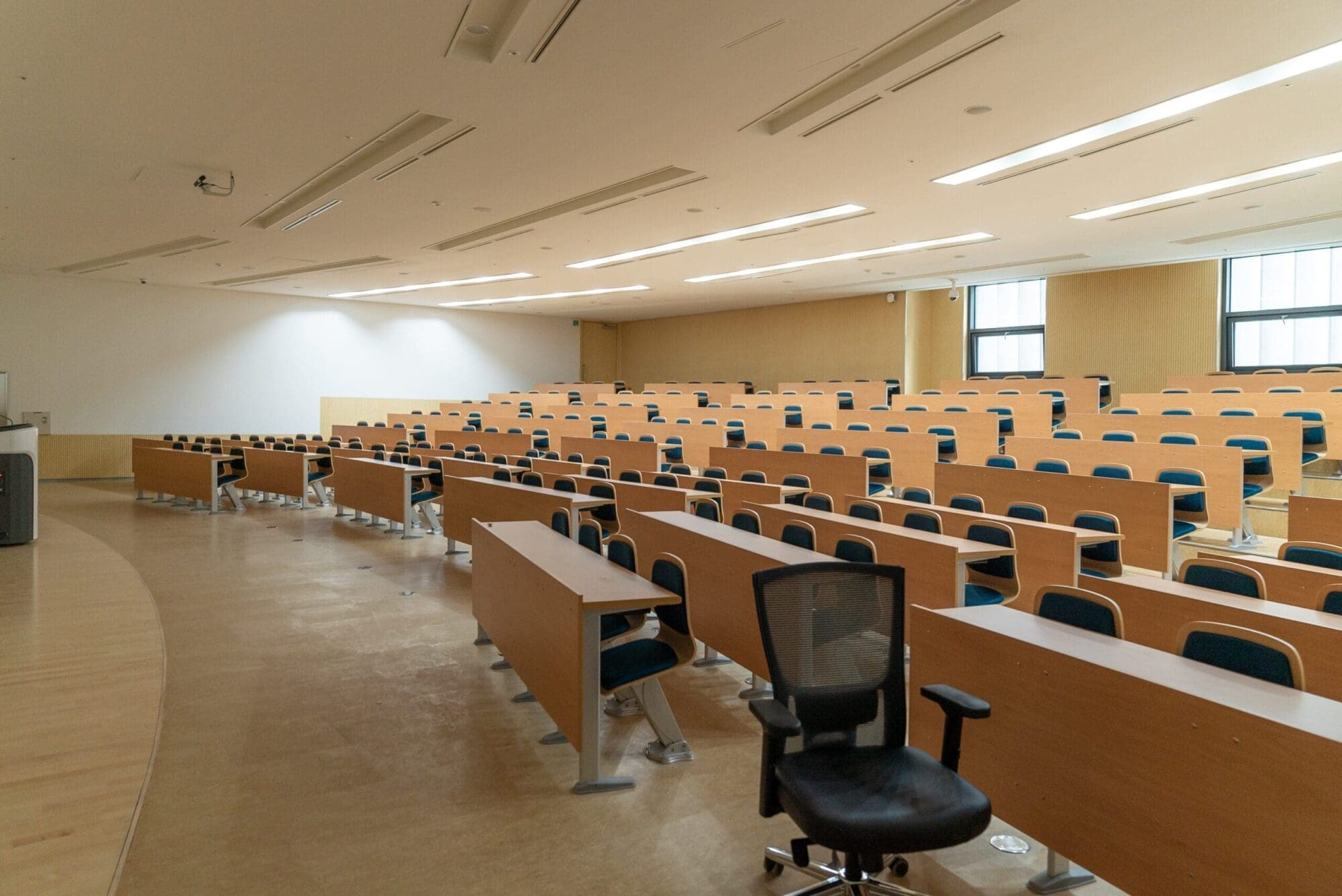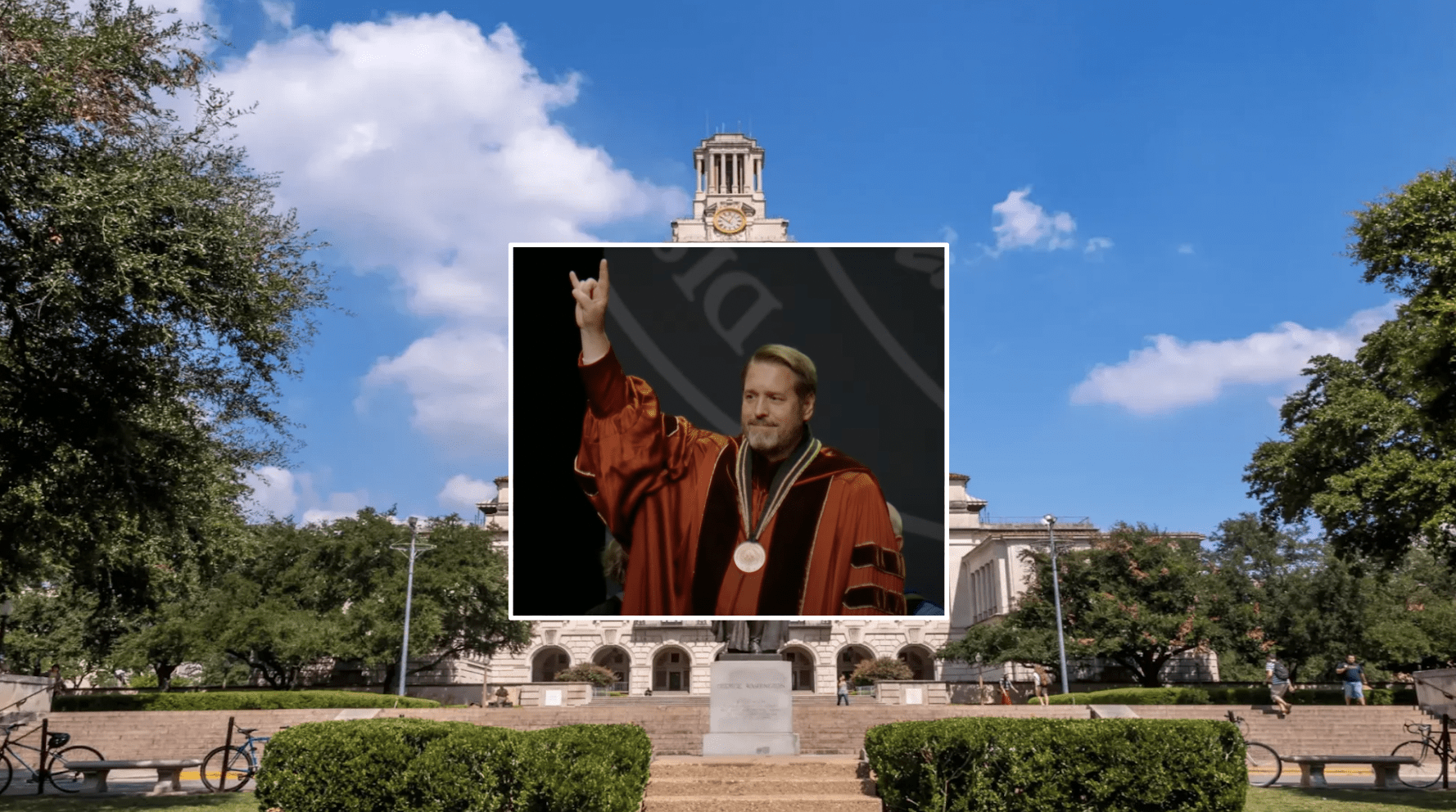This article has been updated since publication.
As state lawmakers’ overhaul of university governance goes into effect, Texas A&M University’s Faculty Senate awaits the Board of Regents’ upcoming meeting, which will determine its fate. In what is potentially their last meeting, the body approved a change in the faculty code of conduct.
“The state of the senate is uncertain,” Andrew Klein, speaker of the Texas A&M Faculty Senate, told members at their August 11 meeting. Noting that this was their last regular meeting, he said that “until our board of regents meets on August 27, the future of the senate remains in limbo.”
Klein, a geography professor in the TAMU College of Arts & Sciences, addressed a large room of nearly 100 seats. Roughly 20 members were shown seated. Display screens in the room were filled with members who had joined online.
While he said he was “buoyed” by Texas A&M University System Chancellor Glenn Hegar’s statement that “at this exact time I don’t see a situation where faculty senates do not exist,” Klein cautioned that nothing is certain until the upcoming regents meeting.
He stated this was in response to a new state law reforming university governance—Senate Bill 37—that passed during the 2025 regular session.
This new law abolishes the practice of “shared governance” in state colleges and universities. It also increases the power of boards of regents over curricula and hiring decisions.
In state universities, “shared governance” describes a system in which universities’ boards of regents delegate authority to faculty, represented by a faculty senate. While regents are accountable to Texans through the governor and the state Senate, which appoints and confirms them, faculty senates have enjoyed no such accountability.
For the past few years, faculty in universities nationwide have been exposed for promoting radical ideologies to students.
Under the new law, boards of regents may opt to recreate faculty senates as a strictly advisory body.
Professor David Bapst, of the TAMU Geology and Geophysics Department, defended faculty senates during the meeting.
“I think right now that not only faculty but the senates themselves have a PR problem,” he said. Bapst mentioned “editorials in various newspapers” that he said joked and lambasted the very idea of faculty senates. “They’re just comments from people who don’t understand how universities work behind the scenes.”
He did add that universities could work without faculty senates. “It would be a lot more like how a high school is run.”
Klein responded in agreement. “Shared governance … is how the whole system works,” he claimed. “I think that we all have to work really hard to ensure that it continues, because it has serious ramifications to our standing as universities in the world.”
During the meeting, the faculty senate awarded Bapst with “The Richard Stadelmann Faculty Senate Service Award.” According to the faculty senate website, this award is given to first-term members who have “displayed an uncommon devotion to the mission of the Senate.”
The new law, which goes into effect September 1, has already triggered change. The Texas State University System Board of Regents passed a rule change during their August 7 – 8 meeting that discontinued their current faculty senates. They will vote to reconstitute them as advisory only in November.
Klein told the TAMU body that, regardless of the regents’ decision, he still intended to push for three items “while I still hold the gavel” as speaker.
First is to increase faculty participation in university outreach to counter “misconceptions about who we are.” This would include faculty visiting schools and clubs.
The second is to resurrect the Aggie Hostel program, which he called Texas A&M’s version of the Rhodes Scholar program. He said it would provide summer opportunities for former students and faculty, including abroad trips such as to Patagonia or New Zealand. Klein said such a program would help “overcome misperceptions about faculty.”
Finally, Klein wants Texas A&M to have a faculty ring for those who’ve spent a “significant amount of time” at the university.
Klein told members that, depending on the regents’ action, there could be a special executive session of the faculty senate on August 29 to vote on at least 140 “curricular items.”
The Senate approved 41 curricular changes on its agenda that day, including proposed changes to the faculty code of conduct and the university’s rule for “non-birthing” students.
The Texas A&M University System did not respond to a request for comment.





